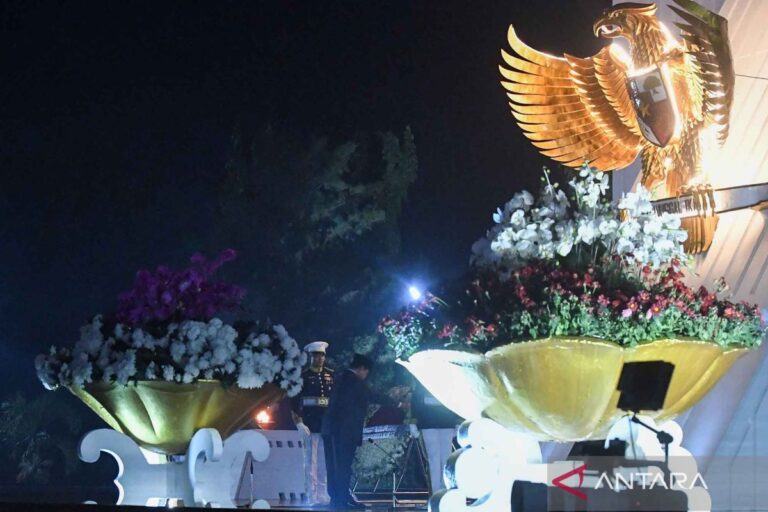
Jakarta (ANTARA) – Mosques are holy places where Muslims can worship, study and so on. However, it is not uncommon to see someone resting or even sleeping in the mosque.
However, as time has passed, some mosques have become so exclusive that their doors are only open during prayer hours. Indeed, since the time of Rasulullah SAW, mosques have been open spaces that can be a place of gathering, study and even rest for anyone who needs it.
This therefore raises a question that is often heard in society, namely: is sleeping in a mosque allowed in Islam? This discussion is very important, especially because mosques are often the center of people’s activities, from waiting for the moment of prayer, to participating in studies, to stopping by travelers looking for a place to rest for a moment.
In order not to make the wrong move, let’s find out what Islam thinks about sleeping in mosques based on information collected from the Ministry of Religion website and various other sources.
Mosques are open spaces for people
The mosque is a place of worship which is the home of Allah SWT and should remain open and comfortable for all. If you look at the time of Rasulullah SAW, Nabawi Mosque was the center of community activities that could be accessed freely.
In fact, it was reported that Thamamah often rested and spent the night in the mosque before embracing Islam. Based on this story, Imam Syafii believes that sleeping in the mosque is mubah (permissible).
The reason is simple: if non-believers are allowed, then obviously Muslims deserve more space in the mosque. Therefore, the mosque should ideally remain a welcoming place for all.
The reality of mosque management today
However, current conditions are actually the opposite. Many modern mosques look majestic and beautiful, but are no longer easily accessible. The doors of the mosque are opened only before and during worship, then closed hermetically at the end of collective prayers.
This overly rigid management attitude is often based on the assumption that the mosque is a very sacred place and should not be used for anything other than ritual worship.
In many mosques today, activities such as children learning to pray while fooling around, worshipers simply resting, and even people falling asleep because they are tired are often considered disturbing. Not infrequently they are scolded or asked to leave the mosque. As a result, the mosque stood majestically, but lost its friendly nature towards the congregation.
Indeed, there is not a single proposition in the Quran or hadith that limits mosques to mahdhah worship only. Indeed, many stories show that the function of mosques also includes broader social activities.
Mosques from the Shari’a point of view are not only intended for ritual worship
An example is the story narrated by Aisyah ra., that Rasulullah SAW once let his companions have a skill contest in the mosque. Umar bin Khattab did not agree, but after seeing the Prophet himself there, he accepted it.
Considering the mosque as the house of God, the ulema maintain that its welcoming function must take precedence over simply highlighting its sanctity. Mosques can be a place of refuge and rest for anyone who needs it.
This is also the basis for most fiqh scholars allowing someone to sleep in the mosque. The Maliki school of thought points out that it is makruh for those who own a house to sleep in a mosque, but it is not prohibited.
The basis of the hadith that strengthens the ability to sleep in the mosque
In addition to this, the ulema also used a hadith related to the family situation of Sayyidina Ali bin Abi Talib as an argument to support the permissibility of sleeping in the mosque. Once the Messenger of Allah went to the house of his daughter, Fatimah ra., but did not find Ali there. Fatimah explained: “There was a problem between me and him, so he left the house.”
The Prophet then sent a friend to look for Ali. Ali apparently fell asleep in the mosque with dusty clothes and body. Rasulullah SAW greeted him and said, “Arise, O Abat-turab (Dust-covered Father)!” This story is often used as a basis to prove that sleeping in the mosque is not prohibited.
There is also information regarding the habit of Abdullah bin Umar, when he was a child and teenager, he often spent the night sleeping in the mosque. This further emphasizes that mosques should remain open and friendly, not only as places of ritual worship, but also as spaces for people to live.
So what is the rule about sleeping in a mosque?
Based on various arguments and opinions of the majority of ulema, sleeping in the mosque except for i’tikaf is permissible or permissible. This is reinforced by practice during the time of the Prophet Muhammad.
Such as the story of Thamamah who spent the night in the Nabawi mosque before converting to Islam, Abdullah bin Umar’s habit of often sleeping in the mosque when he was young, and the story of Ali bin Abi Talib who fell asleep in the mosque and was woken up directly by the Prophet SAW without warning or prohibition.
As long as this is done while maintaining cleanliness, courtesy and not disturbing the worship activities and comfort of the congregation, sleeping in the mosque remains in the permitted category.
A mosque is truly a house of God that must remain open and welcoming to people, especially those who need a place to shelter or rest for a while.
Read also: 8 benefits of consuming halal foods and drinks according to Islamic law
Read also: David’s fast: intentions, priorities and benefits
Read also: The virtue of performing ablution before sleeping from an Islamic point of view
Reporter: Sean Anggiatheda Sitorus
Publisher: Alviansyah Pasaribu
Copyright © ANTARA 2025
Automatic retrieval of content, crawling or indexing by artificial intelligence on this website is strictly prohibited without written permission from ANTARA news agency.



